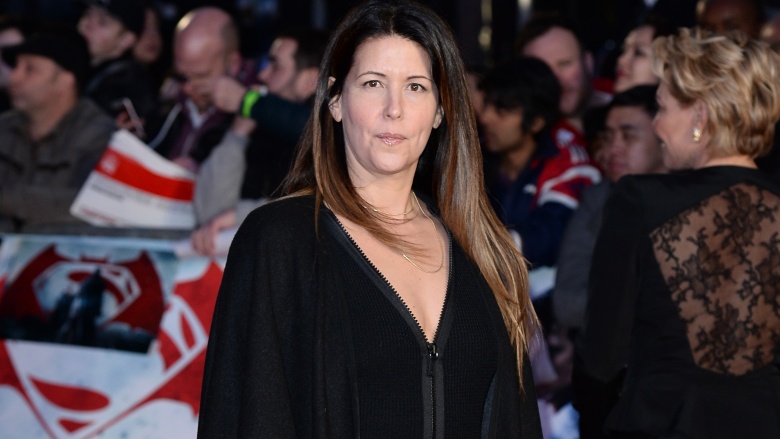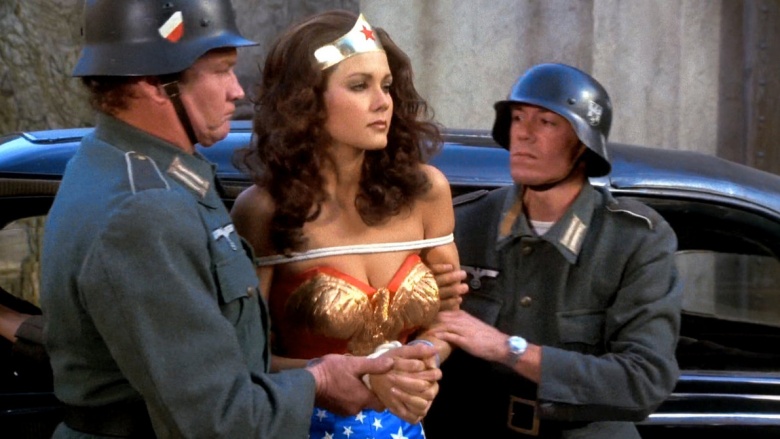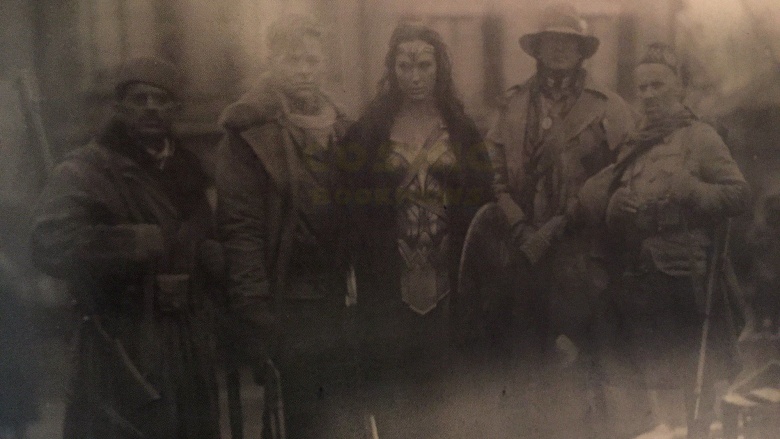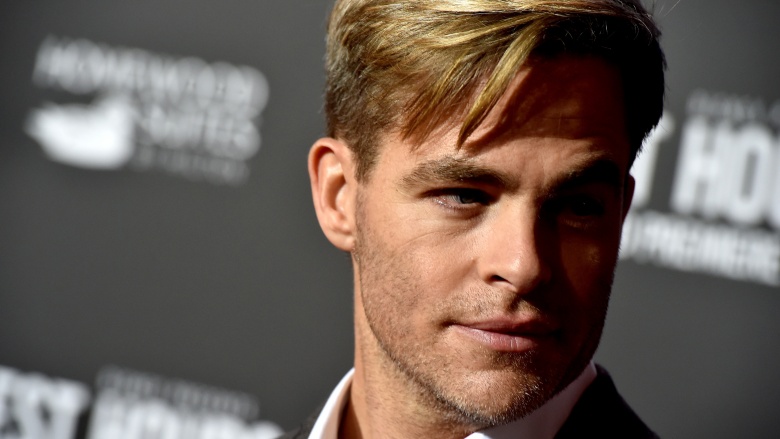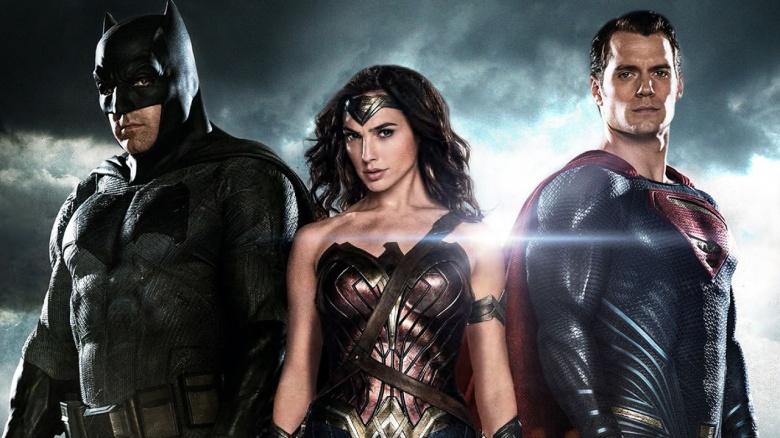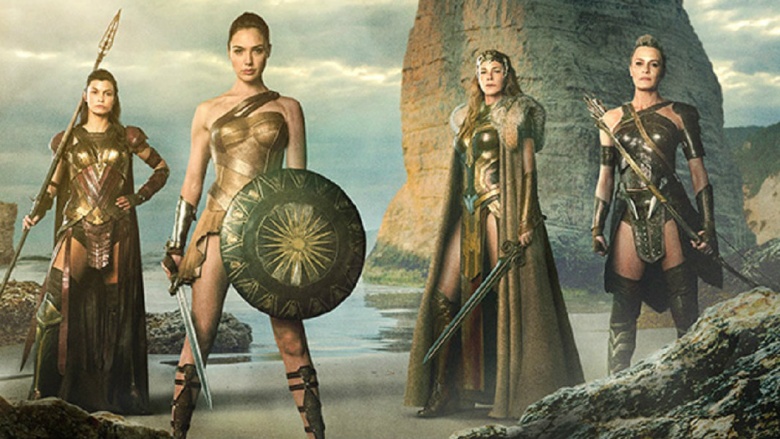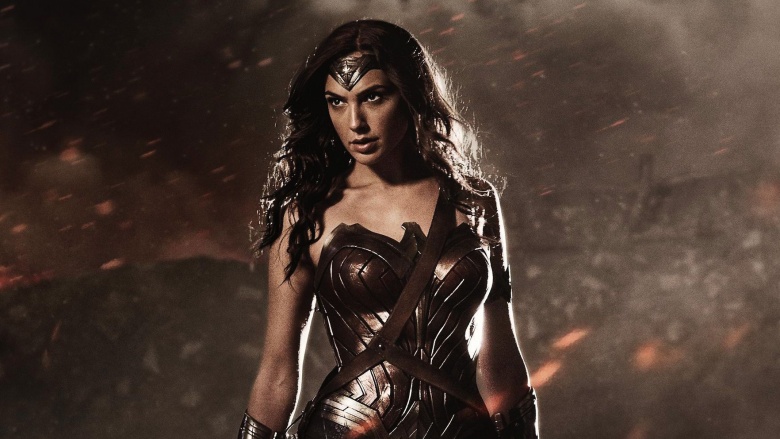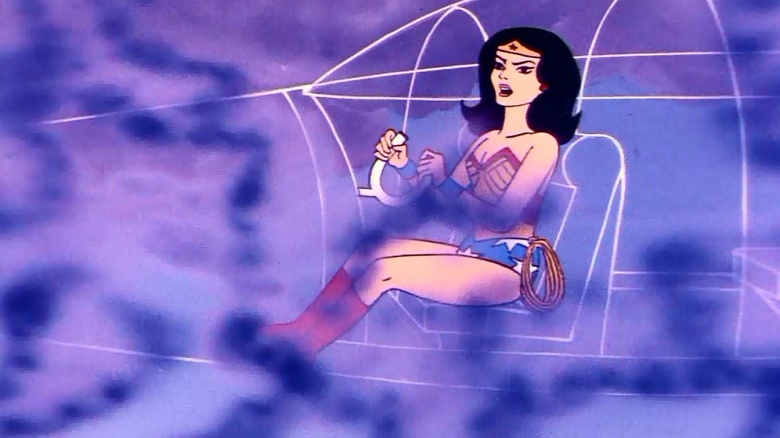How Wonder Woman Can Fix The DC Extended Universe
After all the hoopla, it's finally over. The big boys of Batman v Superman took their place at center stage and ran around trying to resolve their conflict by punching through their feelings. And while Batman and Superman had their fun destroying the better parts of two cities, it's time for the last piece of DC's highly-touted "trinity" to step into the spotlight. Wonder Woman is coming. Based on how great she was despite a small part in Batman v Superman, she's likely to kick all kinds of cinematic butt, and hopefully right the ship of the DC Extended Universe. Here's why you should never send a man to do a woman's job. Oh, and just in case: some spoilers for Batman v Superman await in the words below...
Solid director
Though Gal Gadot made her debut in Batman v Superman, most audience members would agree that she didn't get enough screen time to really develop as a character. Sure, she seemed cool, confident, intelligent and, ultimately, super bad-ass, but none of those qualities explain who Wonder Woman is, why she's in Metropolis, and where she's been. As the DC universe-building machine grinds on with her film as the next installment, chances seem good that director Patty Jenkins—already having proven herself with directorial stints on Arrested Development, The Killing, Entourage, and Charlize Theron's Oscar turn, Monster—will be able to steer clear of Zach Snyder-ing all over everyone's favorite Amazon.
Embrace the weird
Wonder Woman first appeared in 1941 and was the creation of one William Moulton Marston, a man with an interesting set of ideas that saw their realization in the development of the Wonder Woman mythos. Marston had his Ph.D in psychology from Harvard and was fascinated by dominant/submissive relationships. He also invented the lie detector, and lived in an polyamorous arrangement with his wife and another woman. Suffice it to say, the dude was complicated—and he brought those same complications to his comic invention. Critics have connected his lie detector to Wonder Woman's most steadfast prop, her lasso of truth. The device allowed Wonder Woman to circumvent the normal trope of having the hero beat information or a confession out of a bad guy, by merely wrapping her lasso around them in order to find out everything she needed to know. The more the Wonder Woman movie delves into this stuff as source material, the better it could be.
Make the movie a genre film
In Batman v Superman, Bruce Wayne discovers a black and white picture of a group of soldiers standing alongside a powerful female figure who looks awfully like Wonder Woman. Not-so-coincidentally, one of the men looks like Chris Pine, who's been cast to play Wonder Woman's perpetual love interest, Steve Trevor. The picture, based both on its appearance and some dialogue that passes between Wonder Woman and Bruce Wayne, seems to be about a hundred years old. That makes the picture a relic of the DC Extended Universe's version of World War I. This set-up gives Wonder Woman the opportunity to strike out in the direction of some of the Marvel Cinematic Universe's best films. Hopefully it'll turn out to be a solid genre movie with a superhero twist. In this case, think of a war picture, like the one we got out of Captain America: The First Avenger. Trying to adapt superheros into other tried and true story formulas has been one of the reasons that the Marvel Cinematic Universe has been so successful. Wonder Woman has the chance to move the DC Extended Universe in a similar direction.
Make Wonder Woman the hero...period
Since this is going to be the first time in comic book film history that a female character has a movie all to herself, the film needs to avoid putting Wonder Woman in any "damsel in distress" type scenarios. If Wonder Woman is meant to be Superman's equal, then Steve Trevor should prove to Lois Lane's. He might have a desire to help his super-powered compatriot, but he should always be outclassed by adversaries that are simply too powerful for him to face. Thus, Trevor must be the "dude in distress" because he simply does not have the power of a goddess to get the job done.
Character development
One of the many things that has been lacking in both Man of Steel and Batman v Superman is a clear understanding of who any of the characters are and why they do what they do. This issue rings true for both the minor characters as well as the major players. Whether it's Lex, Lois, or Superman, their motivation to do anything in either film is never really explored or justified. Characters just seem to "do things" in order to push the plot along in the hopes that the next special effect extravaganza will make audiences forget the narrative sleepwalk that created the circumstances to get them there in the first place. It's either that or the previous films just assume that the audience knows the characters well enough that they will just ascribe motivations to the characters. If Wonder Woman can capitalize on a genuine desire to create fully fleshed out characters with some level of nuance, internal conflict or even "humanity," it will blow away its predecessors.
Know thy enemy
Another way that Wonder Woman can take a major step forward from DC's previous two efforts is to avoid making their hero the source of the threat. In both of the previous movies, the major existential threats to the Metropolis and sister-city, Gotham (who knew DC's two biggest cities were modeled on Minneapolis and St. Paul?) were Zod (a Kryptonian military man) and Doomsday (a Kryptonian killing machine). If your hero has to consistently save his city from threats that would not have occurred had he not been there, then that's a problem. In such cases, the character moves away from the rarefied air of altruism to the more mundane cleaning up on one's own mess. Wonder Woman's main villain should not be an Amazonian nor anyone from her world. She should come to "man's world" to face off against a threat that humanity could not defeat without her. That's what heroes do.
Commit to the story
With only two films in the DC Extended Universe, there isn't as much to analyze compared with the veritable encyclopedia of titles that Marvel has released at this point. However, it's important to note that Man of Steelwas scrutinized by critics and fans alike for "Easter eggs," as they tried to read scenes like tea leaves as a way to foretell which character would debut first and where the overall story was heading. Batman v Superman doubled down on this with blatant fan service as it just gave fans short clips of Flash, Cyborg, and underwater Dothraki Aquaman, as well as dream sequences alluding to possible futures. Wonder Woman, working as a World War I-set prequel, should try to free itself as much as it can from this penchant of forcing fans to play "connect the dots." With Wonder Woman's relationship to the present already established, her movie can be something of a closed loop that could honor the premise and purpose of the story that her film wants to tell, rather than making it subservient to the DC Extended Universe as a whole.
Flying the friendly skies
Ultimately, if Wonder Woman has any hope of being enjoyed by fans, it just needs to remember two small words: invisible plane.

